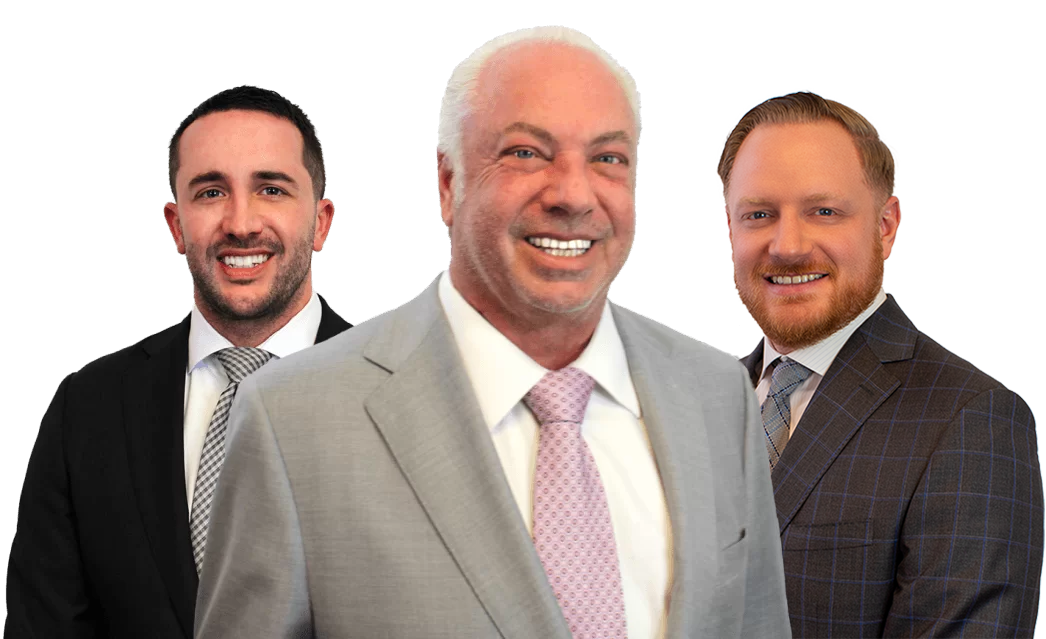 Once a personal injury case has begun, your attorney will start a process called “discovery.” This is a procedure in which both sides exchange documents about the case. The discovery phase is the longest part of a personal injury lawsuit. It can take a year or more from when the defendant files their answer to the eventual settlement or trial. If you did not have an attorney before this point, you will want one when documents like “Request for Admissions” and “Demand for Documents” arrive at your door.
Once a personal injury case has begun, your attorney will start a process called “discovery.” This is a procedure in which both sides exchange documents about the case. The discovery phase is the longest part of a personal injury lawsuit. It can take a year or more from when the defendant files their answer to the eventual settlement or trial. If you did not have an attorney before this point, you will want one when documents like “Request for Admissions” and “Demand for Documents” arrive at your door.
The Written Discovery Phase
The written discovery usually contains two or three parts.
- Interrogatories. This is a list of questions. The opposing counsel will ask you about your job, injury, finances, medical history, and other things related to the case. In return, your attorney will send a list of questions to people involved in your case. For instance, if you have been in a car accident, the other driver will be sent a set of interrogatories like yours.
- Request for Admissions. Just as it sounds, the request for admissions, or “RFA,” asks you to admit to certain things so the attorneys do not have to argue about entering evidence about them in court. If the accident occurred at 5:00 p.m. on the corner of Main and Spring St. in Your Town, USA, you might be asked to admit all that was true. This avoids having to prove every single bit of that later in court.
- Request for Production of Documents. Sometimes is called an “RFP” or “RFD” by the paralegal or secretary handling the case. This request asks you to produce all the documents the opposing counsel believes are relevant. This could be medical records, bills, repair invoices, or any other document that you have that could be related to the case.
What If I Don’t Want to Answer These Questions?
 Usually, you must answer at least some of them. The language of the court documents says that you must answer within a reasonable amount of time and to the extent you are reasonably able to do so. If you do not know the answer to a question or cannot get a document, you can say so.
Usually, you must answer at least some of them. The language of the court documents says that you must answer within a reasonable amount of time and to the extent you are reasonably able to do so. If you do not know the answer to a question or cannot get a document, you can say so.
If you believe a question is not relevant to your case, this is where your attorney will step in. There are objections your attorney can make to certain questions, such as that they are invalid or overbroad, that will allow you not to answer, but you cannot refuse to answer a question outright.
Depositions
After the written discovery has been exchanged, your attorney may request depositions from the other parties. A deposition is a little like being in court. The person being questioned, the “deponent,” will be placed under oath, and then asked questions about the case. The difference is that a judge will not be present; the purpose is only to gather information. The opposing counsel will also be present and can cross-examine the deponent if they wish.
You may also have to sit for a deposition; your attorney will prepare you to answer questions. If the questions are confusing or unclear, your attorney can object or ask for clarification.
Examinations and Expert Witnesses
In a personal injury case, it is common for the insurance company to ask for an independent medical examination to assess your injury. If you are making a claim for pain and suffering, you may also have to have a mental health evaluation. Your attorney will prepare you for these examinations, as well, and explain what the doctors are looking for.
If the case is complex or involves technical or scientific details, your attorney or the opposing attorney may ask for expert testimony. The expert can appear at a deposition or provide a written opinion. For instance, if the accident required you to have a specific type of surgery and the installation of rods in your neck, an expert might be called to explain why this was necessary and why ordinary surgery could not be done.
How We Can Help
It becomes complicated once a case has been set for trial and the discovery phase begins. As you can see from this brief description, there are details that the layperson may not understand and which the insurance company and their attorney can use to their advantage.
When you need legal help with your personal injury case, contact the New Jersey personal injury lawyers of Brach Eichler Injury Lawyers at (973) 364-8300 as soon as possible. Our team is ready to review your case, whether you have already begun the case or need to file your lawsuit. Contact us right away for your confidential consultation.
Written by: Brach Eichler Injury Lawyers Last Updated : August 25, 2023We are the trial attorneys with the experience and knowledge to get you the results you deserve. At Brach Eichler Injury Lawyers, we take time to get to know you, as well as your case. We are committed to excellence. It is important for our team to understand your fears, concerns and expectations. We are always available to answer any questions, and are willing to come to you if you are unable to come to us.
Contact Your New Jersey Personal Injury Attorneys
